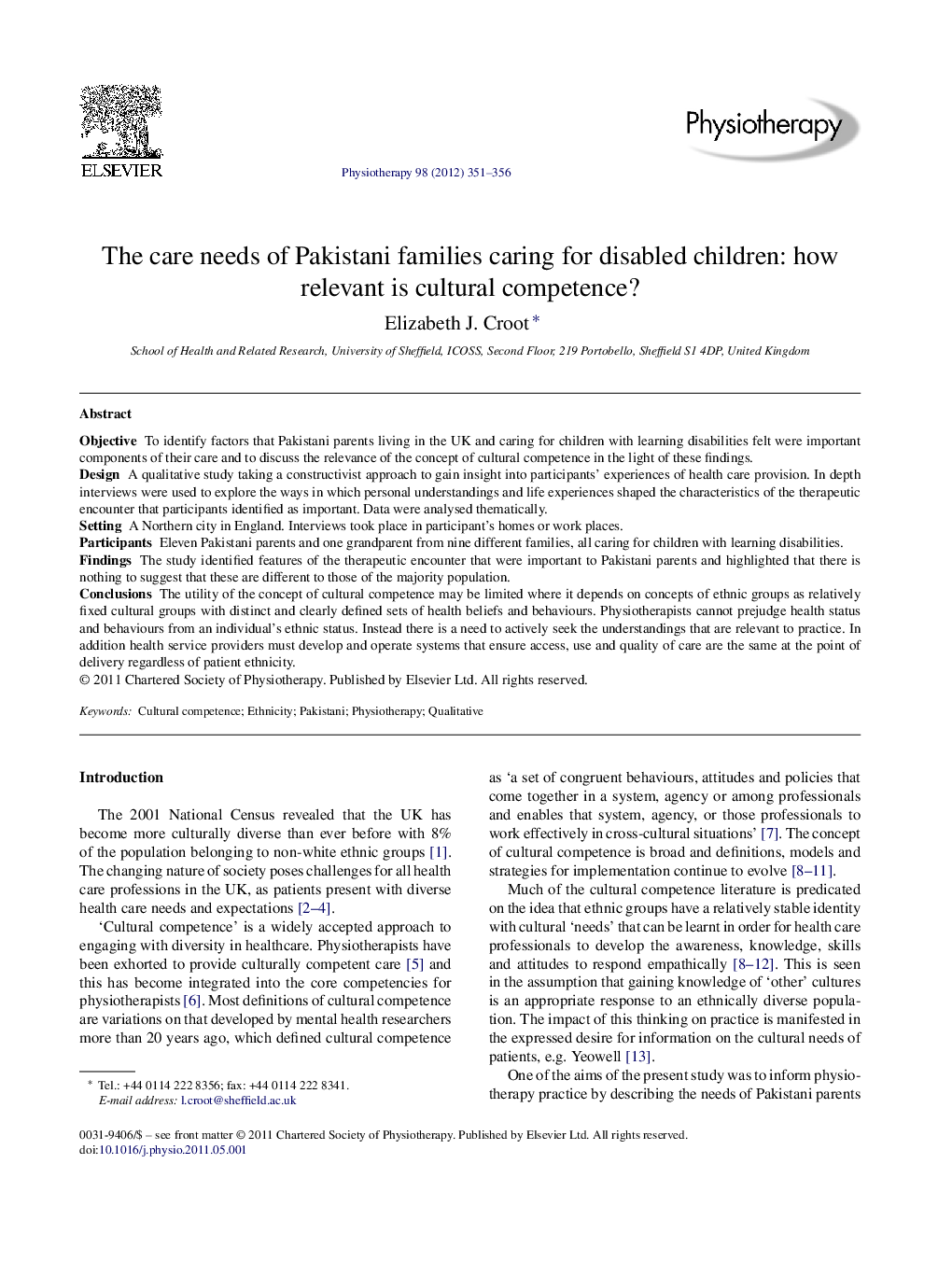| Article ID | Journal | Published Year | Pages | File Type |
|---|---|---|---|---|
| 2627272 | Physiotherapy | 2012 | 6 Pages |
ObjectiveTo identify factors that Pakistani parents living in the UK and caring for children with learning disabilities felt were important components of their care and to discuss the relevance of the concept of cultural competence in the light of these findings.DesignA qualitative study taking a constructivist approach to gain insight into participants’ experiences of health care provision. In depth interviews were used to explore the ways in which personal understandings and life experiences shaped the characteristics of the therapeutic encounter that participants identified as important. Data were analysed thematically.SettingA Northern city in England. Interviews took place in participant's homes or work places.ParticipantsEleven Pakistani parents and one grandparent from nine different families, all caring for children with learning disabilities.FindingsThe study identified features of the therapeutic encounter that were important to Pakistani parents and highlighted that there is nothing to suggest that these are different to those of the majority population.ConclusionsThe utility of the concept of cultural competence may be limited where it depends on concepts of ethnic groups as relatively fixed cultural groups with distinct and clearly defined sets of health beliefs and behaviours. Physiotherapists cannot prejudge health status and behaviours from an individual's ethnic status. Instead there is a need to actively seek the understandings that are relevant to practice. In addition health service providers must develop and operate systems that ensure access, use and quality of care are the same at the point of delivery regardless of patient ethnicity.
